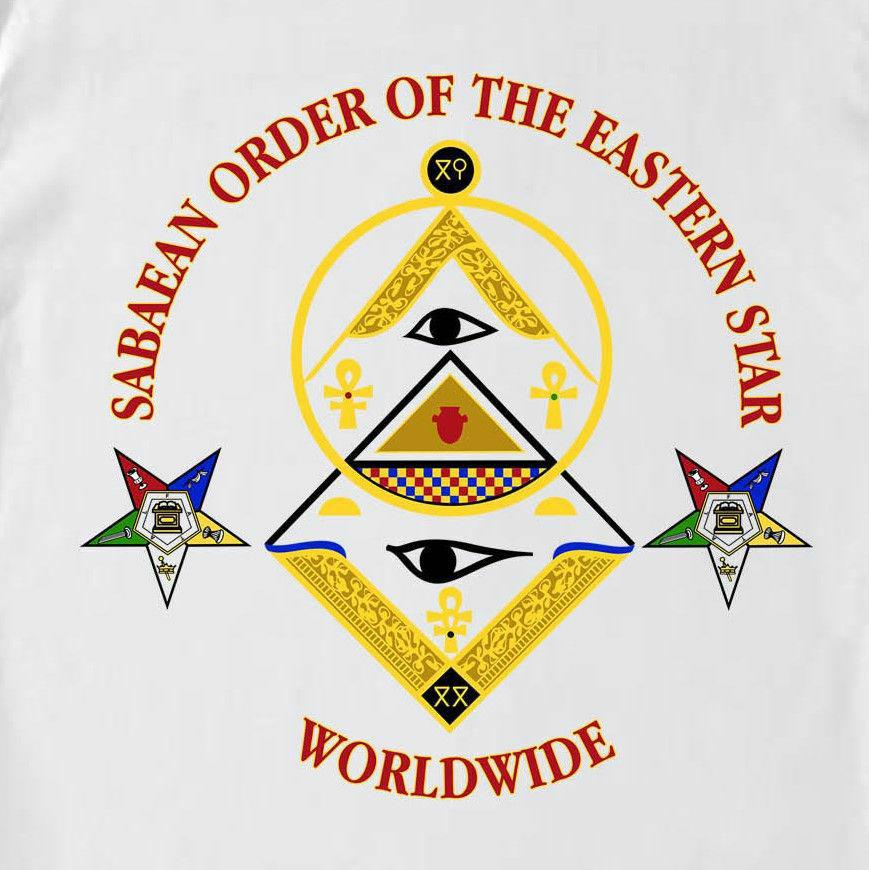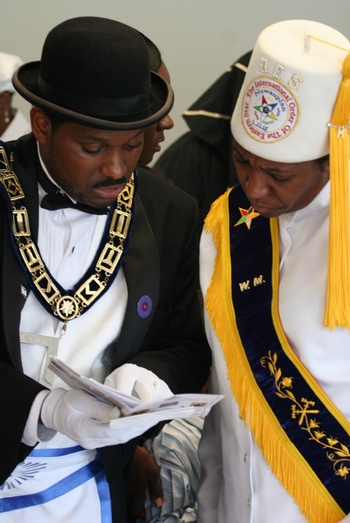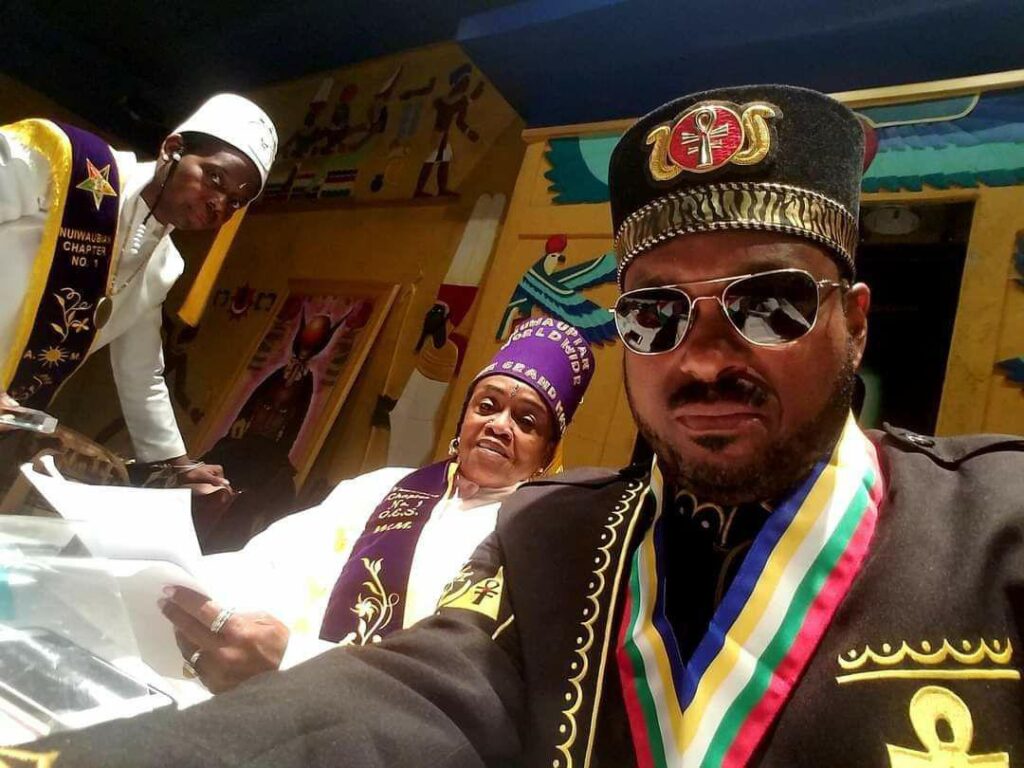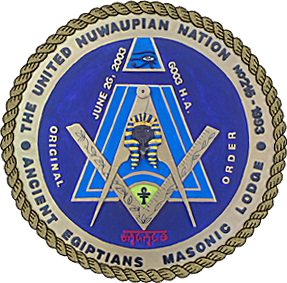Masonic Manners




Much conduct in lodge is governed by tradition, Custom, and usage, with no force of law to enforce or penalty for infringement. Masonic manners, like those of civilized society, are rooted in the dictum that conduct which makes for the comfort and pleasure of others is good.
Manners differ in different countries, States, Grand Lodges. What is customary in one may be strange to another. As no laws govern manners, there is only a consensus behind them; no legal penalty accrues to the man who eats with his knife, forgets to remove his hat in a church or appears in a sport shirt at a formal dinner!
So it is with Masonic manners; they are a body of habit grown up through the years for the general good of all, “rules” without penalty for breaking, yet observances which make for dignity and comfort in, and respect for, the Ancient Craft.
This is neither a pronouncement of authority in Freemasonry but recounts some of the courtesies and etiquette of lodge life as generally not necessarily universally practiced.
Addressing Lodge
Salute is made to the Master and speech begins only after his recognition. Actually a brother addresses the Master, but in practice may turn from him and towards the lodge if what is said takes more than a sentence or two. He who seconds a motion rises and salutes when doing so; the Secretary will want to record both the proposer and the seconder of a motion and cannot easily do the latter if the seconder speaks from his seat.
Advancement
If an officer is absent, the officers below his station do not necessarily move up, each a chair. There is no “advancement by right” for any office except that of Master. The Master fills any vacancy by temporary appointment. In the absence of the Master the Senior Warden presides. In some jurisdictions it is Customary for a Master to ask a Past Master to fill a temporarily vacant chair; in others, he may ask any brother he believes qualified.
Altar and East
It is practically universal that brethren do not pass between the Altar and the East in a lodge, except in procession during a degree. This courtesy is rooted in the thought that the Master should have the Great Lights always in view. In jurisdictions in which the Lesser Lights are placed in a triangular form about the Altar, it is customary not to walk between the Altar and a light. The theory is that the Altar and the three lights about it represent the Sanctum Sanctorum, or Holy of Holies of the original tabernacle in the wilderness. Into this the High Priest could go, but only to return the same way. Brethren enter this symbolic representation of the Sanctum in a lodge room, but do not use it as a passageway by passing through it.
The Altar may be draped as a mark of respect to a dead brother, if so the draping is of black cloth which is beneath the three Great Lights. The Altar should not be draped in any flag; it is disrespectful to the flag to place anything upon it, and not even a flag should cover the Altar.
The ballot box should be placed on the Altar, not on the three Great Lights, obscuring them. Nothing but the square and compasses should rest upon the open Book of the Law.
Ante-Rooms
The preparation room should be kept for the purposes of candidates only; the practice of brethren “slipping in” to the lodge room through this room is a deviation from usual Masonic etiquette. The preparation room, being a part of the halls devoted to Masonic usage, should reflect the hospitality of the lodge room by being clean and neat when a candidate enters it for the purposes of preparation. A host does not willingly take a guest into a home which is in disorder; he considers that courtesy requires his home to be properly arranged that it may express its own welcome. A Masonic lodge room is the fraternal home of brethren; those who come to knock upon the door are guests as well as candidates.
The anteroom used by the Tyler is symbolically in his charge, his sword an emblem of authority over it and those who are in it. He will not be required to use that authority if brethren in the Tyler’s room conduct themselves with the decorum essential to presenting a fair view to candidates who pass through his quarters to the preparation room.
Apron
That all brethren entering a lodge be properly clothed is it once their desire and the Tyler’s duty to ensure. Aprons should be put on before entering the lodge room. The spectacle of a late brother hurriedly entering the lodge room at the last moment, tying on his apron as he approaches the Altar, is much on a par with a member of church entering it while putting on his collar and tie. It is a courtesy much appreciated by all Tylers if brethren leaving the lodge room lay their aprons neatly, in a pile or in the apron box, instead of dropping them anywhere for the Tyler to pick up and put away.
Ballot
The etiquette which surrounds the ballot is a reflection of Masonic thought upon its value and importance. Brethren ballot one at a time; in most lodges after a salute to the Master. It is the consensus that no one should leave or enter a lodge room during the taking of a ballot, with the exception of the Tyler, if he is a member of the lodge. It is customary, to present the box first to the Master for his inspection, then to the Wardens; in some jurisdictions the three principal officers ballot without leaving their seats. In some lodges the box is passed also to all officers; in some to all officers and Past Masters. What is customary is good manners. A Master may, and many think he should, require all members to ballot. Most jurisdictions have a law forbidding any brother to disclose how he intends to or has balloted, or to attempt to ascertain how another will or has balloted. In many lodges it is mandatory, in others customary, for this law to be read following any negative ballot. It is a general courtesy, for the Master to ask the Tyler to enter and vote, his place being taken by another meanwhile. This is properly done after all but the Tyler have voted.
Discussions
These are regulated by Grand Lodge law, lodge by-laws, the Old Charges, the democratic principles of Freemasonry and by Masonic give and take. In general, discussions of sectarian religion, partisan politics, race or any subject which divides men into opposed schools of thought are prohibited by law. In many lodges, speaking for or against any candidate prior to election is forbidden; good manners would seem to demand no such discussion even when permitted. The utterance of personalities, the showing of bitterness, ill will, criticism of officers or Grand Officers are of course discourteous. Flippancy is out of place. A lodge open is a lodge at work. The work of Masonry is serious, to the extent that it should be so regarded by all present, which does not preclude some good natured laughter if occasion warrants. ln no case is it good manners for two brethren to speak at once or for one to interrupt another; interruption is the sole privilege of the Master.
Dress
In some lodges, formal evening clothes; in others, dinner jackets and black ties constitute formal dress. Some lodges do not have any formal dress. Local custom here governs good manners. In hot weather a Master may substitute informal but uniform dress for the heavier winter clothes; where uniform dress is customary it is the uniformity, rather than the actual style, which makes for lodge dignity. Dress for funerals should uniformly be dark clothing, a requirement by Grand Lodge pronouncement in most Grand jurisdictions.
The Master is not required to wear a hat. He is permitted to do so, as a sign that he alone may remain covered, just as a king wearing his crown has the only head covered in the assemblage. A Master has but three superiors, God, death and the Grand Master (or his Deputy). Masters, therefore, remove their hats during prayer, in the presence of death (which includes announcements) and of the Grand Master (or his Deputy). Some Masters, with the most courteous of intentions, become “hat snatchers” and remove the hat whenever speaking in lodge, which seems to minimize the importance of the hat as a symbol of power. The Master’s hat should match his dress; formal (silk) hat for full dress or Tuxedo, ordinary hat for ordinary dress; a cap (unless, during a war, a military man is Master) never.
Entering Lodge
In many jurisdictions several brethren enter together, form a line before the Altar, salute and then are seated. In others they approach the Altar one at a time, salute and seat themselves. What is Important is that local custom be followed and that brethren do not approach the Altar with bundles or papers in hand.
Flag
The rules concerning the flag of our country are promulgated by the government. As far as lodge is concerned they are sufficiently simple. Flag on a staff is to be at Master’s right, if based on the platform. If based on the lodge floor, at the Master’s left, which is right hand for the brethren. In giving the pledge of allegiance brethren face the flag and stand at the sign of fidelity.
Grand Honors
Grand Honors are usually given the Grand Master, his Deputy when representing the Grand Master, in some jurisdictions to a Past Grand Master. Grand Honors are not customary to any lesser-rank brother after being given to him who has the greatest rank; thus, if a Grand Master has honored a lodge by a visit and received the Grand Honors, they are not again given to any other Grand Lodge officer or Past Grand Master unless by permission of the Grand Master.
Past Masters
The courtesy of offering a seat in the East to Past Masters is observed in many lodges. It is a matter of custom and the absence of the practice is not a discourtesy where it is seldom or never done. But if done at all it should be also done for the late coming Past Master as well as for those present when the courtesy is first offered. Grand Officers or Past Grand Officers already seated in the East are sufficient excuse for not offering the same kindness to Past Masters.
Punctuality
Gentlemen asked to come to a private home for dinner at seven P. M. do not arrive at eight. Brethren asked to come to lodge at a specified hour exhibit the best manners if they are on time. A Master who opens exactly on time and closes early has a right to expect the courtesy of punctuality; the Master who opens and closes late cannot. The work of a lodge is that of many brethren. If fifty are present and ten minutes are wasted, a total of more than eight hours time has been lost. Punctuality in the business meeting is valued by the audience which may be looking forward to a degree, a speaker, an entertainment. Dawdling through business is as poor manners from officers as is exhibited by the late comers who put their convenience above the comfort of the brethren they disturb.
Sign of Fidelity
In some lodges all use the sign during opening and closing. In others it is used only as a salute to the Master in place of other actions. In still others it is customary, only during flag ceremonies or pledge of allegiance. What is customary is good manners.
Speakers
Courtesy to invited speakers is long remembered and poor manners to them are seldom forgotten. A speaker appreciates being introduced at the time he was invited to speak. If he is from out of town he is happy if he is met and escorted either to lodge or to his hotel. If his journey, involves payment of his expenses by the lodge, his check should be ready for him before he leaves. If his address has been the principal event of an evening, his talk should close the program. No anticlimaxes of “a few remarks” should then be asked by Master of any brother, except a Grand Master or his Deputy who may have graced the occasion with his presence.
Visitors
Visitors who come to a lodge expecting a fraternal welcome never forget either its offering or its refusal. The visitor from another jurisdiction is happy when the brother who introduces with him sits with him and makes him feel at home. A perfunctory welcome from the East and neglect for the rest of the evening are not characteristics of that jewel of Masonry, the belief of every traveling brother that he can find “a home away from home” in any Masonic Temple in the land. The most cursory reading of these thoughts on Masonic manners will disclose that good manners in Masonry, like those in civil life, are rooted in kindness and flower in good will.
